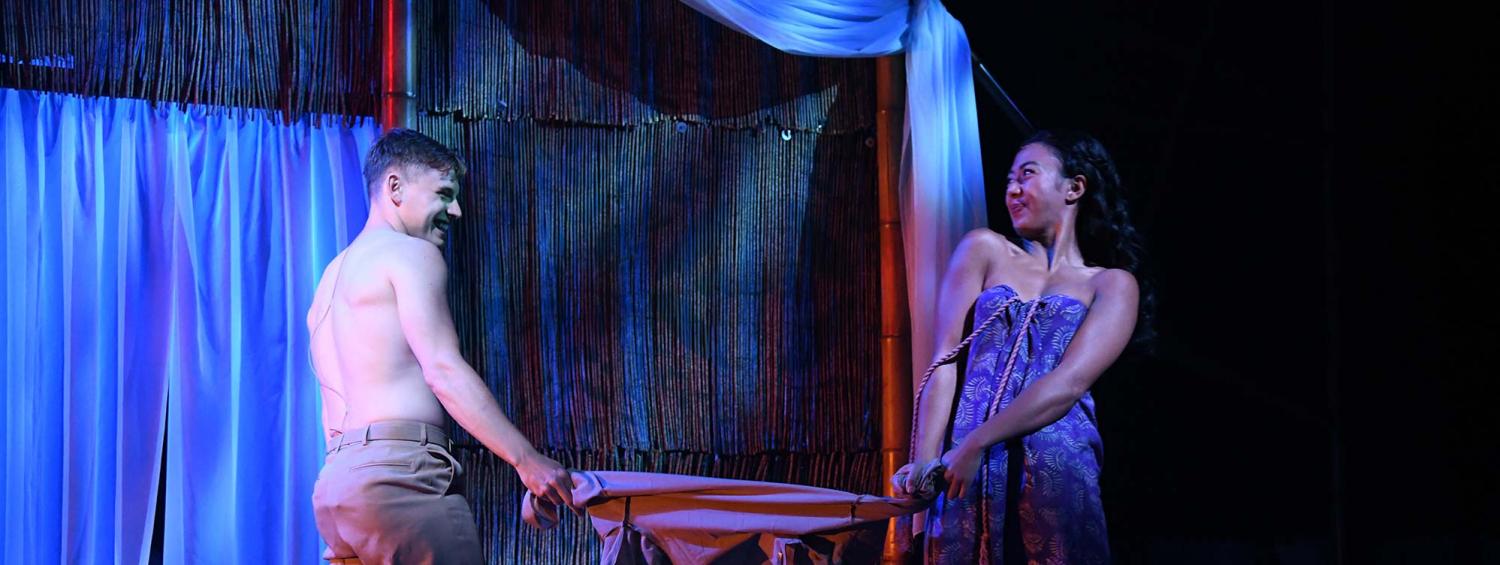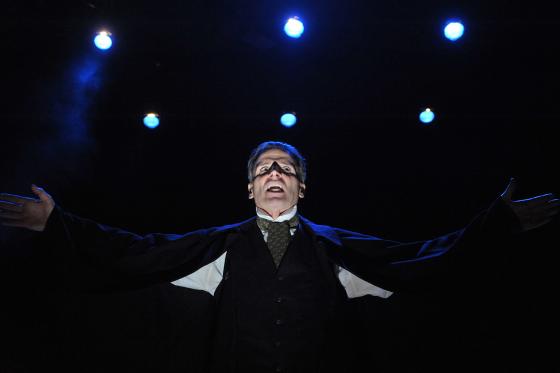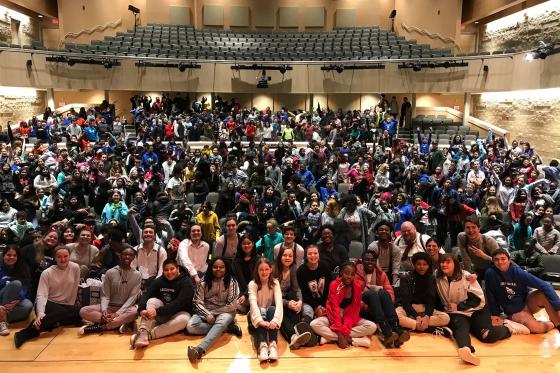The best part of my job as Artistic Director – and also, without a doubt, the worst and most frustrating part of my job – is season planning. And though you could say I’m always in season-planning mode, the time when I’m working the hardest to choose the plays and musicals we’ll be doing is right now, almost exactly one year before the season I’m choosing begins performances.
“How do you choose the season?” is also, without a doubt, the most frequent question I’m asked, and after nearly a decade doing it, I still don’t have a simple answer. I wish it was as easy as picking the best nine plays and musicals I find in a given year, but artistic quality is only the beginning. Everything I choose has to be of the highest artistic quality… but beyond that, it’s about a mysterious alchemy that’s never the same twice.
I have to find a mix of classics, new plays and multi-generational works that balance in terms of finances, artistic significance, and entertainment value. The season needs a good mixture of comedies and dramas; it should speak to the cultural moment (no easy task when you’re planning 12-24 months ahead); and the stories we tell should reflect the community around us, featuring a diversity of voices and a diversity of thought. Diversity of expression should also be in balance: are there too many traditional “well-made plays” that happen in living rooms, and not enough that stretch the boundaries of theatrical form? Women and men should be equally represented, both as writers and as subjects. I need a few shows that will make the press perk up and want to write about us. I want to showcase brand new plays because risk and adventure is part of our mission to move the artform forward. I have to keep our staff of 55 full-time folks excited and engaged with my choices. I need to consider the talent available in our community. Of course, I need to get the rights to the plays – and especially with big-name shows that’s never easy. Every major theater in town wants to do them, and only one theater gets permission in any given season. And finally, the works we produce should reflect the kind of community we want to live in and promote.
That last piece of the puzzle is particularly important when it comes to considering older works. It’s not simply about political correctness: for example, it’s ethically insupportable to consider plays with white actors in blackface, though that used to be common. Anti-Semitic works like Christopher Marlowe’s The Jew of Malta (1590) may have artistically exceptional elements, but they perpetuate stereotypes and hatreds that are certainly odious to us today.
With classics, it’s the issue of gender politics that is, I think, the thorniest. While theater has (mostly) gotten the message when it comes to race, religion and sexuality, in the realm of classic plays and musicals, we’ve had a hard time letting go of works that showcase outdated gender roles. Perhaps the speed and the fury of the #MeToo movement catapulted these questions to the fore more quickly than their equivalent movements in race, religion and sexuality. But so many pieces of exceptional theater that came out of the great mid-20th Century flowering of the form in America - pieces I would have programmed just a few short years ago - now give me pause as I consider how they reinforce norms that feel creaky or even misogynist today.
In the wake of the #MeToo movement, for example, should shows like Kiss Me Kate, or Streetcar Named Desire, or Carousel be done anymore? As our culture continues to shift, with different communities and generational cohorts shifting more rapidly than others, it’s tough to wrestle with that question. I could produce a season of golden-age musicals that would sell extremely well to a certain segment of our audience, but which would turn off another segment. My Fair Lady might be having a great success at Lincoln Center today (as it had for us back in 2017), but twenty years from now will anyone still produce it as currently written? Is it worth a few dollars to be on the wrong side of history?
This has been a subject of serious debate here at OTC on the artistic team, as we confront conflicting responses from our audiences. South Pacific has been an instructive flashpoint. I chose the show in the summer of 2017, soon after the Charlottesville “Unite the Right” rally. That 70-year old musical had more, and more important things, to say about race in the United States than our President did. But by the time we produced it, with #MeToo still revealing its lasting impact, the gender politics of the play suddenly felt extremely problematic. Watching the nearly-silent Liat be seduced by a handsome Marine in an instant, at the behest of her uber-capitalist mother, made all of us squirm during rehearsals. That the show was one of our most popular offerings in the theater’s history, garnering more than a hundred adulatory emails to me, only makes the wrestling more difficult. For all that South Pacific has to offer a 2018 audience in terms of artistry and politics on the subject of race, do its backward attitudes about women disqualify it from the canon? Did we have an obligation to somehow address its moral inconsistencies in production?
I’m thankful to one of our members who wrote an extremely smart and well-reasoned email to me about these questions after seeing Elf:
"I have been incredibly impressed with the caliber of productions at Olney Theatre. Your work is truly extraordinary in range and quality. My son, a high-school junior at Atholton in Columbia, is developing a real passion for theater and is getting cast in more (and more prominent) roles. To support his education on this front, we became season subscribers at Olney this year for the first time.
In processing our impressions of the various shows, my family has come to focus on a disconnect between the Theatre's progressiveness on race and its progressiveness on gender. This disparity seemed consistent enough that I wanted to share my impressions with you.
After both South Pacific and Elf, we were struck by what seemed a lack of creative energy toward bringing dated gender tropes into the 21st century. We had black Santa with an iPad, but we still have a line from the Macy's manager about Elf "bedding" the female lead? The mother in the show could be given a "planning meeting" but not a career? Mrs. Claus had to be in the kitchen preparing to hostess her family gathering while Mr. Claus sat in his armchair, drinking? These may seem trivial nitpicks, but how are we to build a more balanced world with rip tides like these? Obviously South Pacific is a terribly dated show--a "romance" built around child prostitution. I understand the show was ahead of its time on race, but in the current era of slow enlightenment re sexual degradation of women in the workplace, it was frankly miserable to sit through those scenes as if entertained.
My message overall is one of encouragement. I hope you will continue to boldly go where no man has gone before on modern updates to dated norms."
There has been vigorous and healthy debate on staff about this email, and I’ve been thinking a lot about how some of our largest theaters and even commercial producers have been able to get authors’ estates and older living writers to address dated gender tropes in their works. Sondheim’s Company, an extremely important 1970 musical, would feel miserably dated today as written; but director Marianne Elliot convinced him to regender the main character, Bobby, and his exploits; that production is a hit on the West End and likely headed to Broadway. Legendary director Bill Rauch convinced the Rodgers & Hammerstein estate to allow his recent Oklahoma! to be staged with same sex couples, eliminating many of the gender issues that make that play tricky today. And of course, directors have been playing around with gender in public domain works like the plays of Shakespeare for decades.
As a theater dedicated to a mix of classics and new works, OTC is committed to programming plays that reflect the kind of fair and equitable community we want. So while we’ll still program some of those classic “boy meets girl, boy loses girl, boy gets girl back” stories, we’re certainly going to do our best to address the outdated gender politics that prop them up.
I invite you to let me know your thoughts at Jason@olneytheatre.org.






